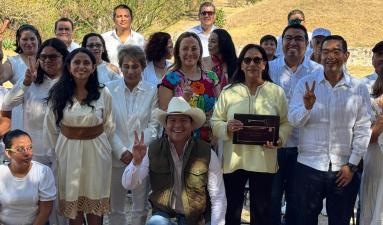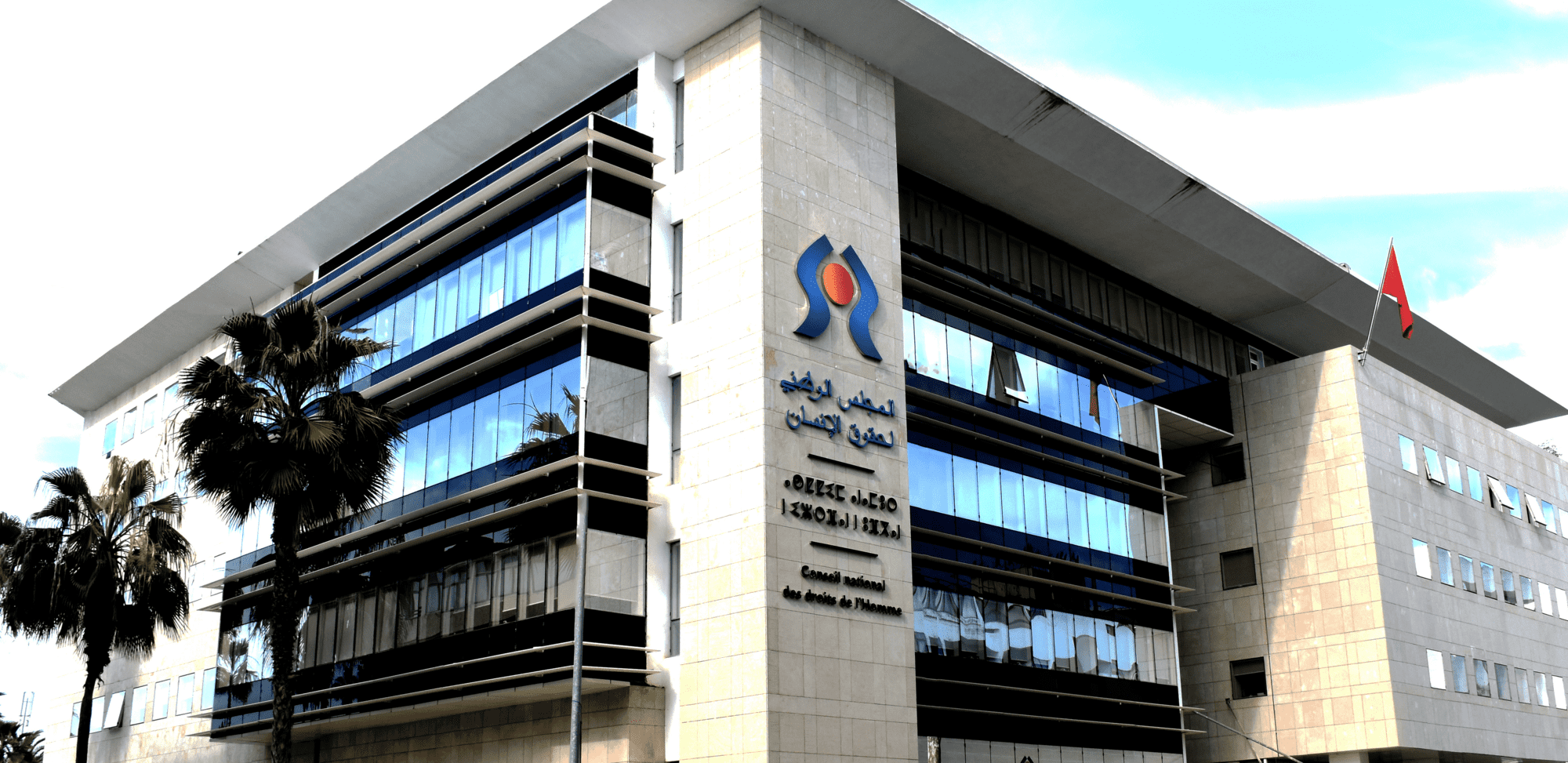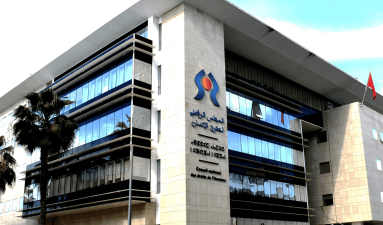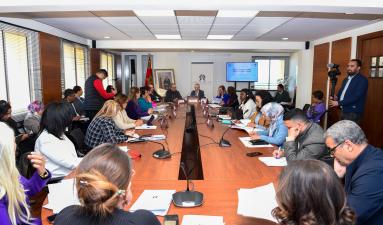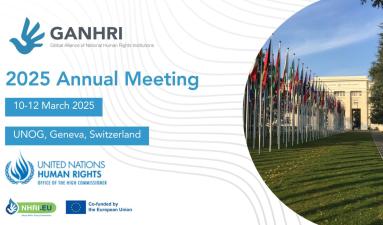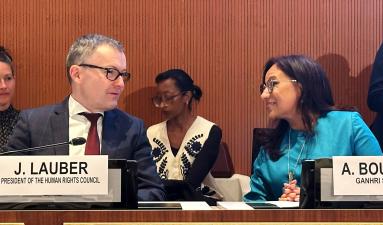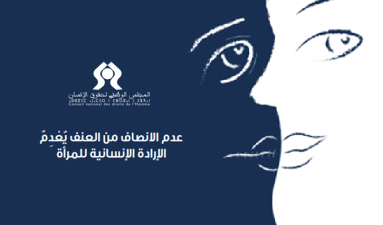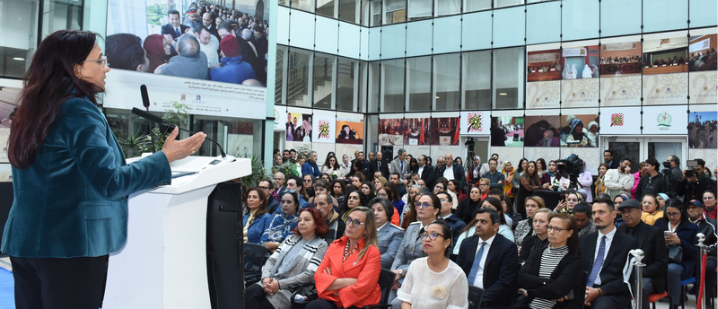
This celebration is a clear expression and recognition of Moroccan women’s contribution to the process of societal transformations experienced in Morocco over the past two decades and an affirmation of their pioneering role in challenging violations.
Amina Bouayach: Women’s Rights are Authentic Component at the Heart of Moroccans’ Identity which is Open, Moderate and United in Solidarity
The National Human Rights Council (CNDH) organized a meeting on Moroccan women’s contributions to the process of truth, equity and reconciliation, on Friday 8 March 2024, at its headquarters in Rabat, Morocco, in commemoration of International Women’s Day and the twentieth anniversary of the establishment of the Equity and Reconciliation Commission (IER).
Former victims, their families or their rightful claimants, and persons interested in following up on the IER’s actions participated in this event.
In her statement, Ms. Amina Bouayach, CNDH Chairperson, welcomed the cooperation of the Royal Armed Forces, General Directorate of National Security (DGSN), and Royal Gendarmerie, and commended their ongoing commitment to the process of transitional justice in Morocco.
She noted that choosing “Moroccan women’s contributions to the process of truth, equity and reconciliation” as a theme to celebrate International Women’s Day this year is a clear expression and recognition of their contribution to societal transformations experienced in Morocco over the past two decades and an affirmation of their pioneering role in confronting violations.
Ms. Bouayach affirmed that Moroccan women have always been and continue to be pivotal actors in the context of societal, intellectual and conceptual development as part of a national process to achieve equality and parity. This process will continue to change perceptions and ideas that sidestep human rights values and harm women’s dignity. She also expressed her unwavering belief that collective perseverance, determination, and shared aspirations will ultimately lead to overcoming all obstacles that seek to marginalize women.
Additionally, CNDH Chairperson emphasized that any approach to equality and party issues requires understanding the interplay between legal and societal aspects as well as developmental dimensions. She highlighted the importance of deepening the understanding of Moroccan society’s reality to provide renewed solutions that ensure the cohesion of its components. She also added that the process of equality in Morocco was launched nationally and intertwined with universal principles, and it will continue to alter mindsets and address anything that might impede women's rights or marginalize their roles.
Mrs. Fatna El Bouih, writer, human rights activist and former detainee, shed light on her experience with detention from a feminine perspective. She underlined the role of literary writing in documenting history, particularly the stories of women who have struggled and the families of detainees. It aims to enable future generations to uncover the courage of mothers, sisters and wives and their active involvement in the process of societal change.
This event featured artistic performances created by young women, including a choir performance of young women from the Creativity Space in Casablanca. This event also showcased paintings by young women with disabilities, conveying their experiences and challenges with disability. Furthermore, a video documenting CNDH initiatives in advocating for women’s rights was presented.
Concluding this meeting, CNDH Chairperson paid tribute to Ms. Mbarka Belarabi, a dedicated member of the CNDH staff, for her unwavering support of victims and rightful claimants in the field of health coverage. Ms. Bouayach emphasized that Ms. Belarbi has devoted her professional journey to closely collaborating with victims of past violations and rightful claimants, particularly within the framework of the IER work. She has steadfastly accompanied and committed herself to the issues central to the CNDH missions.

